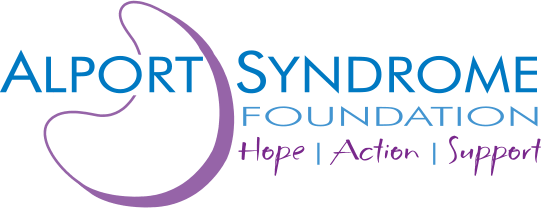Clinical trials are important because they provide new insight into diseases and new treatment options. The U.S. Food and Drug Administration (FDA) oversees clinical trials to provide safety oversight for patients.
Developing new medicines is a lengthy and complex process, relying heavily on volunteer participation to evaluate potential therapies for safety and effectiveness in clinical studies. Without the patients who volunteer to participate in clinical trials, the development of new medicines would not be possible.
A clinical trial is a formal medical study using human volunteers that allows researchers to better understand a particular disease.
Considering there were no human Alport syndrome trials a few years ago, the current lineup of study options is a significant improvement. However, the number of studies is disproportionately low. A primary point of concern is Alport syndrome does not have enough pharmaceutical interest proportionate to the number of patients who are affected.
Here are ways YOU can support research into potential therapies for Alport syndrome and increase the number of trials available to our community:
- Patient data drives clinical trials. Participation in our Patient Registry and NEPTUNE Natural History Study helps advance Alport syndrome research.
- Stay informed by becoming a Free Member of the ASF Community. As more trials become available, review if you or your family members are eligible to enroll.
- In rare diseases like ours, study trial groups are small making every data point extremely meaningful. If currently enrolled in a clinical trial, work closely with your physician and clinical study coordinator to stay enrolled until completion of the trial.
Below is a simple explanation of the different stages in the development of new treatments:
- Observational study: This early phase allows researchers to better understand the natural progression of the disease they are studying. While experimental drugs are not typically given during observational studies, participants are often able to continue taking existing medications prescribed by their own physicians.
- Phase 1 trial: During this phase, researchers give the experimental drugs to a small group of healthy volunteers. This helps researchers determine appropriate dosage and test for safety and side effects.
- Phase 2 trial: Once an experimental drug is deemed safe for humans, it is administered to a small group of patients to see if it improves health outcomes for the condition being studied and to continue evaluating safety.
- Phase 3 trial: If the data demonstrates that the experimental treatment is both safe and effective, a larger group of patients are given the drug. Some may also be given a placebo to compare it with the experimental drug. Researchers continue to evaluate safety and determine if the new drug is more or less effective than current treatments.
- Phase 4 trial: After the new treatment is approved and marketed to patients, researchers continue to assess the drug’s safety and efficacy as used in the real world.
Additional resources:
- ASF’s Clinical Trial Questions and Considerations PDF
- ClinicalTrials.gov
- NIH: National Institutes of Health
- FDA: U.S. Food & Drug Administration
- U.S. Department of Health & Human Services Office for Human Research Protections
- Global Genes: Allies in Rare Disease
- American Kidney Fund: Phases of clinical trials
- American Society of Gene + Cell Therapy – Clinical Trials Process
- The EveryLife Foundation for Rare Diseases – About Accelerated Approval
- CISCRP’s Pediatric Education Series: Treatments in Clinical Trials
